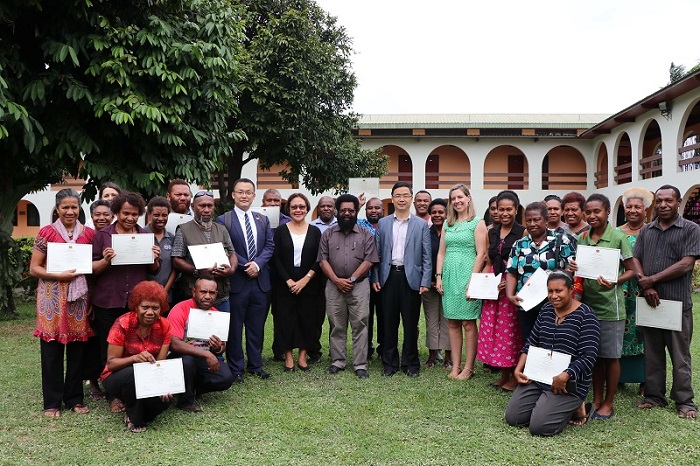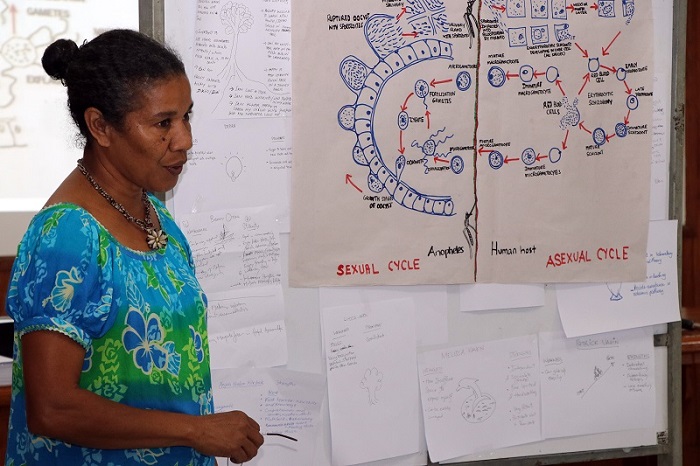With Australian funding Papua New Guinea now has 20 certified malaria microscopist trainers to train other microscopists after a successful completion of training in Port Moresby.
The newly certified trainers are from various provincial hospitals across the country.
Held from 19 to 23 August, the trainer of trainers’ course was the first of its kind and delivered by a World Health Organization (WHO) consultant in conjunction with the Central Public Health Laboratory (CPHL). The training was held to strengthen malaria detection and diagnosis in PNG and supported by the Australia-China-PNG Trilateral Malaria Project.
High-performing participants were selected from past External Competence Assessment of Malaria Microscopists (ECAMM) delivered by the Australian Defence Force Malaria and Infectious Disease Institute over the last three years. The ECAMM grades microscopists based on their ability to diagnose malaria, and PNG currently has a record number of 29 level-one and level-two microscopists.
Representatives from the PNG National Department of Health, Chinese Embassy and the Australian High Commission presented certificates to nine high-performing microscopists and their supervisors at the graduation ceremony held Friday 23 August.
Emeline Cammack, first secretary of health security at the Australian High Commission addressed graduates, saying; “You are at the forefront of malaria control and elimination in PNG, and being able to share your skills more broadly will help PNG move closer to eliminating malaria by 2030.”
Counsellor Liu Linlin from the Embassy of the People’s Republic of China confirmed his country’s “ongoing commitment to sharing malaria expertise with PNG and the region.”
Leo Makita, National Malaria Control Program Manager with PNG’s Department of Health, reiterated the importance of microscopy skills development in PNG and said the new trainers combine technical skills with teaching skills.
“Capacity building is important for all laboratories to make sure there is the continued sustainability of malaria microscopy for accurate detection and diagnosis, and we thank our partners for their continued support,” said Mr Makita.
“These microscopy trainers will also allow provinces to take ownership of their practices and to decrease the training burden and supervisory visits conducted by CPHL to assess whether laboratories are operating to national standards.”
For further information, including access to related materials, please contact the Australian High Commission media team: +675 7090 0100

The graduating malaria microscopists from provincial hospitals with representatives from the governments of Australia, China and PNG.

Level 1 malaria microscopist Sarol Taitibe from Milne Bay Provincial Hospital Laboratory presents the ‘life cycle of a malaria parasite’ during an assessment.
